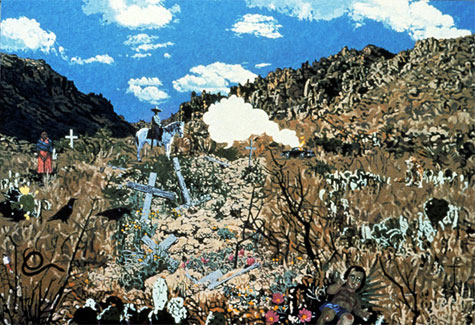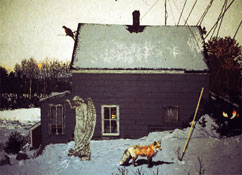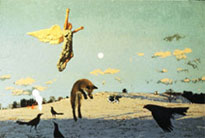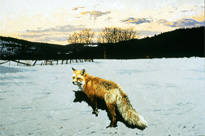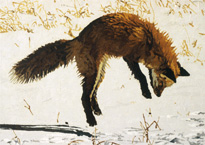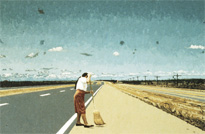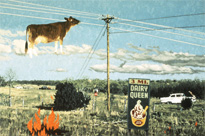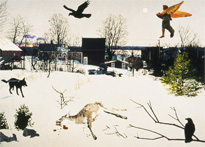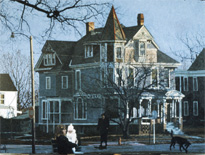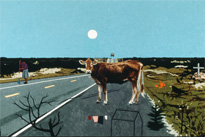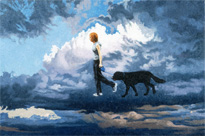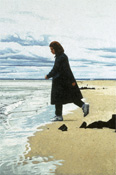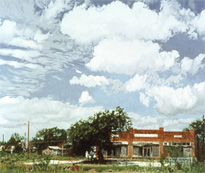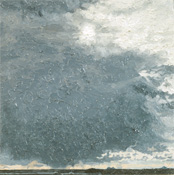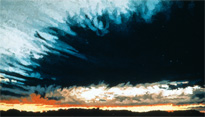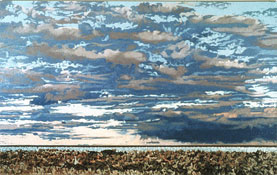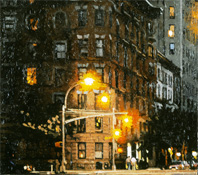Roger Winter's paintingsare hard to believe. Yet his nuanced, detailed imagery of the Maine landscape has a dysfunctional honesty that is hard to refute. They come from memory and move into future being. In the present we ‘know’ them only for the moment. They feel like experience – curious, familiar, alluring, confounding, disturbing, not an experience recreated in a painting but a painting of a living that has become hard to see. The images of Winter’s world are familiar but not through what they represent. They render the viewer’s experience of living rather than a view of that reality. One comes away from them speechless and bewildered, as represented by the empty phrase balloons emitting from the beaks of birds, heads of young swimmers or the mouth of a laughing dog. The quotation balloon of human thought and language is as quotidian as the moon, full yet hauntingly empty.
Jennifer R. Gross, 1996
Roger Winter’s masterful work has moved over time from the solid figures of a familiar childhood to a landscape in which people are largely absent. And yet one senses that the change is not of substance, but of a deepening reality that has been earned by his submission to the demands of his psychic life. His use of the disjunctive is an attempt to recall the images of childhood that, when properly aligned, may present the artist with the meaning of a remembrance – that in turn leads to a further remembrance – of a life that has been shocked into stillness but that must now be reactivated by memory and love.
Above all, Roger Winter remains in question. This is the seeker’s truth.
David Kherdian, 1996
